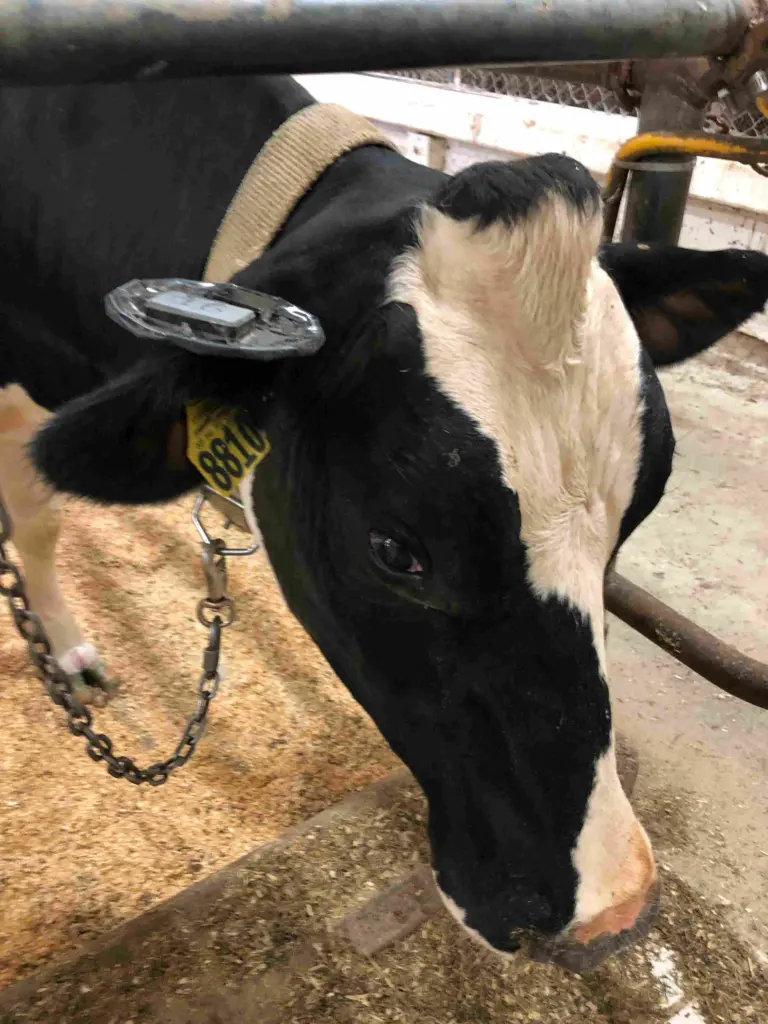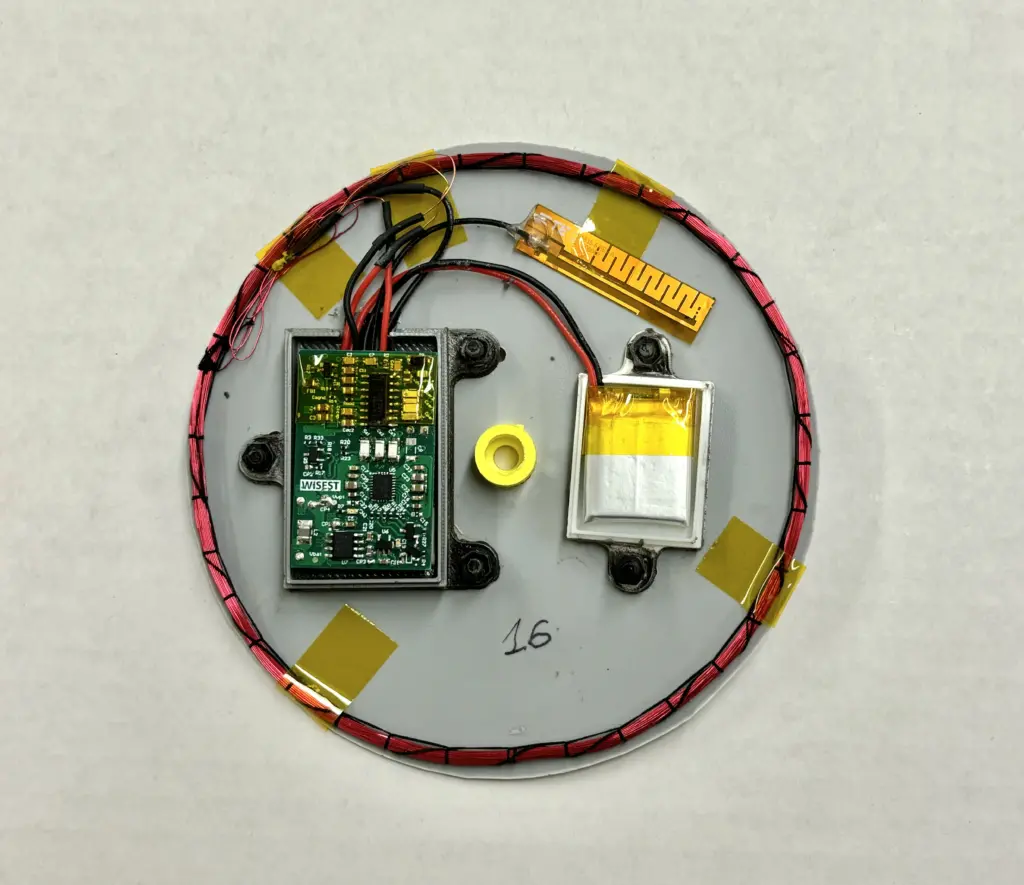As extreme heat gripped much of the world in summer 2023, many people struggled to stay cool. They weren’t the only ones: Using electricity-gobbling giant barn fans and misting machines that sucked thousands of gallons of water, farmers did all they could to keep their dairy cows from overheating, which not only stresses the cows, but also leads to reduced milk production.
As a smarter and less expensive alternative, a team of University of Wisconsin-Madison researchers is using an innovative electrical device called an eTag to monitor the temperature of individual cows in real time to gain a better understanding of their behavior under stress. They hope to scale up to a smart system that can automatically identify heat-stressed animals and deploy cooling measures. They presented their research in October 2023 during the International Conference on Mobile Computing and Networking, which also published their work in its proceedings.
 A dairy cow wearing an eTag, which collects real-time temperature data.
A dairy cow wearing an eTag, which collects real-time temperature data.
“The overarching objective of this project is to detect and mitigate heat stress in dairy cattle, because it is a daunting challenge in terms of economics, animal welfare and environmental aspects,” says Younghyun Kim, an associate professor of electrical and computer engineering at UW-Madison and primary investigator on the project. “Even in Wisconsin, severe heat has become a threat to the industry.”
His interdisciplinary team at UW-Madison includes Christopher Choi, a professor of biological systems engineering; Jennifer Van Os, an assistant professor and extension specialist in animal and dairy sciences; and Sabrina Brounts, a clinical professor in the School of Veterinary Medicine.
In the first step of their project, the team developed and implemented a monitoring system using devices they call eTags. They implanted temperature sensors about the size of a rice grain at the base of the cows’ necks, similar to the ID microchips used in pets. Connected to small devices clipped to the animals’ ears, the sensors delivered real-time temperature data every five minutes. Every time the cows visited the milking parlor, wireless charging coils recharged the devices, similar to the pads used to wirelessly charge cell phones.
Over summer 2022 in the dairy barns on the UW-Madison campus, the team gathered data on the cows’ temperature and their physiological response to the heat. In summer 2023, at the UW-Madison Arlington Agricultural Research Station, the team continued to collect temperature data and, using cameras, gathered a broader range of information including the animals’ postures and movements when the thermometer went up.
In the next phase of this research, the team plans to connect the temperature data with the visual data to determine common signs of bovines in distress, creating algorithms to identify heat-stressed animals from their movements and posture. Ultimately, the researchers hope to take the eTags out of the equation entirely and develop a low-cost system that relies only on cameras in barns to identify overheated cows.
 Kim and his students designed the ear tag assembly, which recharges wirelessly when cows enter the milking parlor.
Kim and his students designed the ear tag assembly, which recharges wirelessly when cows enter the milking parlor.
“The eTags are a very useful tool to measure temperature in real time, but injecting these sensors is an additional cost. And farmers are sensitive to extra costs,” says Kim. “So if you can do this visually or with a more low-cost sensor, that would be great.”
Cameras that can identify individual cows experiencing heat stress eventually could be integrated into a smart barn system that automatically deploys cooling measures for individual cows or zones of a barn, saving both electricity and water costs.
Kim, who studies low-power, embedded, implanted and wearable devices, says he’s thinking much bigger than the cows—though he’s happy to help the Wisconsin dairy industry. “This is a promising application area where we can take advantage of low-power, energy-efficient computing technologies,” he says. “The findings of this research are quite generally applicable to any type of internet-of-things research that needs these technologies.”
Other UW-Madison authors include Hien Vu, Hanwook Chung and Christopher Choi.
The authors acknowledge support from the U.S. Department of Agriculture National Institute of Food and Agriculture grant number 2021- 67021-34036 and the U.S. National Science Foundation under grants 1845469, 2112562, and 2213688.
Top photo caption: (From left to right) ECE graduate student and lead author Hien Vu, Dimuth Panditharatne, a biological systems engineering (BSE) graduate student, Trey Standiford, a BSE undergrad, and Hanwook Chung, a BSE graduate student, helped build and deploy the eTag system, which is collecting data on heat stress behavior in dairy cows.